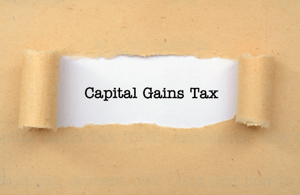
- Washington State will impose a 7% excise tax on capital gains for individuals with capital gain income exceeding $250,000 in any one year. This threshold is subject to an annual cost-of-living adjustment.
- The tax is expected to raise $500 million a year for education and child care for low-income households
- The legislation is expected to be signed into law by Governor Jay Inslee, and it is expected to impact about 8,000 taxpayers per year, far fewer than the original proposal. He has until May 18 to sign or veto the measure.
- This is the first tax of its kind in Washington, which is one of nine states without an income tax.
The tax would be paid on long-term capital gain income based on the federal definition beginning on January 1, 2022. The tax only applies to individuals and does not include short-term capital gains.
Exclusions include:
- The first $250,000 in long-term capital gains per year. Of note, this exclusion is $250,000 per single individual or $250,000 per married couple or domestic partnership;
- Retirement assets including 401(k) accounts, deferred compensation, IRAs, and defined benefit plans;
- Sales of real estate;
- Sales of shares in a nonpublic corporation or units of an LLC entity, but only to the extent that the nonpublic corporation or LLC entity directly owns real estate;
- Sales of closely-held small businesses with gross income of less than $10M in the preceding year;
- Goodwill from the sale of an automobile dealership;
- Some agricultural exemptions for the ranching, timber and fishing industries; and
- Assets condemned by the government.
Capital loss carry-forwards are allowed, but only on a limited basis which is expected to be further defined as the Department of Revenue does its rule-making.
At the eleventh hour, the conference committee added a deduction for charitable contributions to charities that are principally directed or managed in Washington. The first $250,000 of such donations would be disregarded, and the next $100,000 of such donations would be eligible for the deduction.
There are no requirements for estimated tax payments, so the soonest that any tax would be due is April 15 following the year of the capital gain income.
It is certain that this legislation will face legal challenges, to determine whether or not it meets the "all taxes shall be uniform" provisions of the state constitution. As for an action at the November 2021 ballot box, the legislature included a "necessary" provision tying it to the items it will fund, and assuming that wording withstands possible challenge, the only way to take this to the people is by an Initiative which requires far more signatures and less time to gather them than a Referendum would require.
We are here to help you navigate this new law. Please don’t hesitate to reach out with questions. Bea Nahon, Sweeney Conrad Principal, is on the WSCPA Government Affairs Committee, and tracked each nuance and amendment as it all unfolded. We will be providing more guidance as it becomes available from rule-making or other activity.


